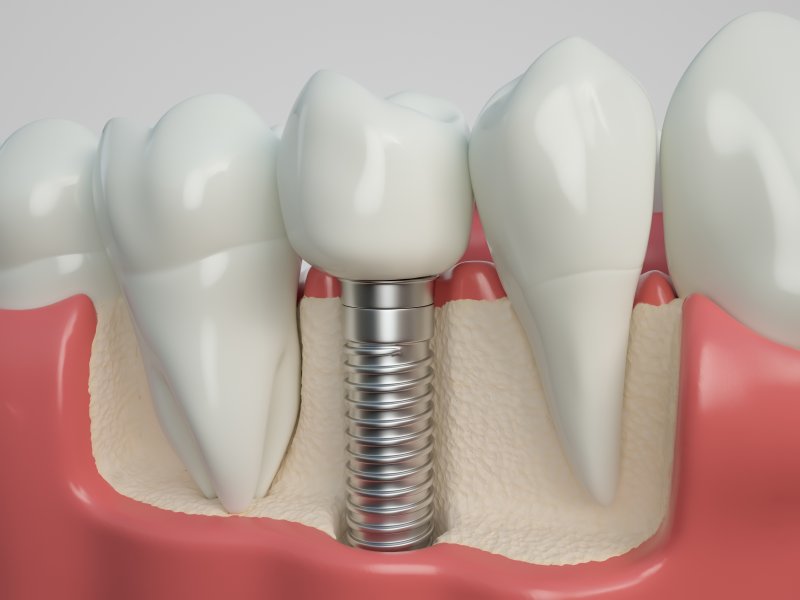
When comparing dental implants to other solutions for tooth replacement, you might have some misgivings about the higher price point. But over the long term, you’re likely to find implants are the more cost-effective option due to one simple factor: a longer lifespan. With the right care, implants can last for decades – or even the rest of your life! Read on to learn how exactly how long you can expect your new teeth to last as well as the kind of maintenance they require.
How Long Can You Expect Implants to Last?
As far as the implant post itself (the part made from titanium that directly integrates with the jaw) is concerned, you can normally expect it to last as long as there is still enough healthy jawbone to support it. For this reason, the post is considered to be permanent. Of course, the depends largely on your ability to keep the implant clean and the rest of your mouth free of tooth decay or gum disease.
You should keep in mind that the prosthetic attached to the implant – be it a crown, a dental bridge, or full dentures – will generally not last as long and will most likely need to be replaced at some point. That said, you can still get 15 years of use or more out of a well-cared for, well-protected prosthetic.
What Can Shorten the Lifespan of Dental Implants?
Implants are highly durable, but even they aren’t indestructible; there are several factors that can cause them to break or otherwise need to be removed. For example, if you bite down on something hard such as a peppermint, it might crack the prosthetic and damage the post. Also, if your mouth suffers from an injury, infection, or disease, your implants may not last as long as expected. Thus, to keep your new smile safe, you should be extra vigilant about protecting your mouth.
What Can You Do to Make Dental Implants Last?
Luckily, taking care of implants is much like taking care of your natural teeth. To help the post and the prosthetic last, your implant dentist is likely to suggest that you:
- Brush and floss thoroughly every day to remove the bacteria and debris that can lead to plaque and tartar.
- Avoid crunching ice or chewing on especially hard foods.
- Wear a mouthguard while playing sports.
- Visit your dentist at least two times a year for a checkup and cleaning.
In the worst-case scenario, your dentist can perform a dental implant salvage procedure in order to treat any health issues that might have developed and, if possible, let you keep your new teeth. That said, if you want your implants to last a lifetime, you should always be practicing diligent maintenance and excellent preventive care.
About the Author
Dr. Dan Maurer has always been driven by a desire to help others, and he is proud to be working alongside his father at Longmont Complete Dentistry. He offers his patients friendly treatment as well as unwavering dedication. If there is a gap in your smile that you’d like to fill with a dental implant, you can schedule a consultation at Dr. Dan’s Longmont practice by visiting his website or calling (303) 772-7000.
